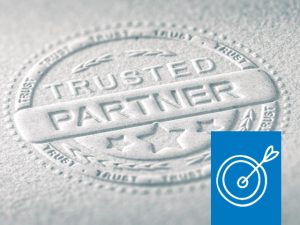The latest messages from passionate risk advice advocate, Chris Unwin, have a beauty in their simplicity…
Keep it simple, stupid

Have you ever failed to do business that you could and should have done? What do you think is the most common reason for this?
I was fortunate to be recruited into the life insurance business via the client box. Back in 1978 I had two meetings with a life insurance broker at the end of which I became a client. I bought some income protection, some whole of life insurance and a savings plan and to me it was just plain common sense. Spend less, save more and protect your income along the way – how can you argue with that?!
When I joined the company of which I became client some nine months later it was because I suddenly realised the difference between a job and an opportunity, which is control of your income. Every time I convinced someone to take out the same common sense policies that I had taken out myself, I knew I would earn a certain amount of money. So, the amount of money I earned over any period of time would simply be a function of my activity, and that was something over which I had control.
What I also realised very quickly was that financial planning isn’t rocket science – it’s common sense. Ever since I started in the business I have been on a mission to keep things as simple as possible for my clients – K.I.S.S. That way, I was always able to avoid confusion on the part of my client, which would otherwise have prevented business being done.
Typically, there are two main reasons why potential business doesn’t happen when it could, and should. Firstly, it could be because your client doesn’t have enough information on which to base an informed decision. This is highly unlikely, given that what we are recommending our clients should do, as already identified, is hardly rocket science. However, some clients crave more technical information than others and in this instance we can simply provide whatever additional information our client requires so that business can be done. Therefore, the issue of our client not having enough information is easily recoverable, as all we have to do is provide more information until they have enough on which to base their decision.
The other main reason for business not happening when it could and should (which is much more common than the first one) is that you have given your client too much information, otherwise known as information overload. This can result in confusion and a confused client will never do business. So this situation is not recoverable, because you can’t take back information you have already given. Game over, I’m afraid!
Waterproofing the business at point of sale

Have you ever had new business not complete due to the client getting “cold feet” and would you rather it didn’t happen again?
In an earlier Chrisism we looked at waterproofing first appointments to make sure we were not the only one putting the appointment in our calendar and the appointment was ‘real’ (click here to read this Chrisism). This time around, we are going to address the issue of waterproofing new business at the point of sale to ensure the business is real and is going to stay on the books.
In our business, because a client gets nothing in the form of physical, tangible product to show for the money they have ‘parted with’, waterproofing the sale becomes all the more important. We need to understand that, because we are selling intangibles, there will typically have been a particular point in the initial client engagement process at which the client made the decision to buy. It will usually be something we said, a picture we painted or a story we told that will have resonated with the client and triggered an emotional decision to buy. But the problem is that we don’t normally know what that trigger was because the client doesn’t suddenly exclaim “Yes – I’m going to buy!” It is an internal decision they make without any verbalisation.
So, let me ask you: how handy would it be to know what each client’s hot button was, that is, what was the emotional trigger we pulled that motivated this particular client to buy? Pretty handy, I would say! So why don’t you ask them?
At the point of sale, whilst the ink is metaphorically drying on the application form, I strongly recommend you ask your client the following question:
“Welcome aboard as a client! Tell me, if you had to pick the 3 main reasons why you’ve decided to take up my recommendations today and go ahead with your personal protection package, what would they be?” And then, just shut up!
Hopefully they will be able to verbalise why they have chosen to proceed with your recommendations, in which case you need to write their reasons down on a piece of paper and keep them on their client file, because they represent that client’s hot buttons and you will now be able to press those hot buttons when it comes to review time!
Sometimes you may have to help them identify the main reasons why they have decided to proceed – in which case it’s just as well you did, because they may just have been carried away on a tide of logic and reason and simply couldn’t think of a good enough reason for not going ahead. That would make them very vulnerable to post purchase remorse, as we know that people don’t buy on logic and reason, but on emotion.
Even if you go through this process with a new client, it is possible that they will still hit the panic button. If this happens, you will need to get together with your client to discuss a piece of paper on their file which has their reasons for going ahead with your recommendations, which should outweigh any panic-based reasons they may have expressed for not proceeding.

Chris Unwin is a financial adviser of 37 years standing and has been a specialist risk adviser for the last 22 years. His training and consulting business has operated for 12 years and it specialises in helping advisers across the full spectrum of experience with their client engagement skills, both in the risk advice specific space as well as in the more generic soft skills space.
…And if anyone would like to receive Chris Unwin’s Chrisisms on a fortnightly basis, just email him with your details, including the state in which you reside.
Contact or follow the author: Telephone: +61 417 281 034 | Website | Email | LinkedIn













